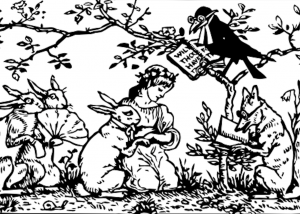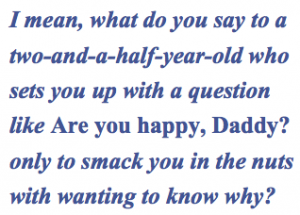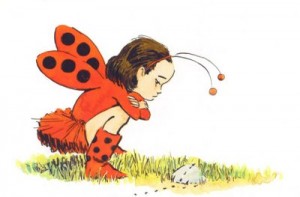 Bourbon and Milk features lessons, observations, and conversations by and with writers living out there in one of the most perplexing outposts of the human condition – parenthood. In this monthly series, Contributing Editor Giuseppe Taurino will dive into the dark spaces where parenting sometimes pushes us, and explore the unexpected ways writers may grow in them. If you’re interested in joining the conversation or contributing a Bourbon and Milk post, query Giuseppe Taurino at giuseppe@americanshortfiction.org.
Bourbon and Milk features lessons, observations, and conversations by and with writers living out there in one of the most perplexing outposts of the human condition – parenthood. In this monthly series, Contributing Editor Giuseppe Taurino will dive into the dark spaces where parenting sometimes pushes us, and explore the unexpected ways writers may grow in them. If you’re interested in joining the conversation or contributing a Bourbon and Milk post, query Giuseppe Taurino at giuseppe@americanshortfiction.org.
I’ve been on bedtime duty since we first brought my daughter home from the hospital. Our routine has changed over time, but the crux of it has and continues to revolve around books. I like to think of it as our thing. And though initially our interactions were limited—she’d sit in her rocker or on my lap cooing or giggling as my voice bounced off the walls— the experience has been anything but since Z began stringing words together.
Initially, her questions and observations were short and to the point. The moon! she’d say pointing at a stray sliver etched into a blurred night sky. Who’s that? she asked when a secondary character entered the scene. Naturally, the older she’s gotten, the more specific her curiosity has become. What are they talking about? she often asks when two characters are facing one another. She’s going to the grocery store or He’s going to find his mommy she insists at the slightest hint of a character leaving.
This increased level of engagement has extended bedtime well beyond the fifteen minutes it once took to read Good Night, Moon, feed Z a bottle, and pat a few burps out of her. And while I sometimes pine for those simpler bedtimes, which had me decompressing with my own bottle in hand at 8 pm sharp most nights, our exchanges are one of my favorite things about fatherhood. For one, my kid loves books, and having grown up in a house void of them, amongst friends and family who never got why they mattered to me, her hunger for them sometimes makes me weepy. Secondly, the back and forth we share, in my mind, is a glimpse into the deep, wide-ranging conversations we’ll be having until I drop dead. And lastly, I love having the answers. Filling in the blanks of your kid’s reality is empowering. I don’t believe anything has ever made me as happy.
Which of course is a terrible feeling to rely on as a parent. And not because parenthood shouldn’t make you feel better than average, or like your existence somehow carries weight in the grand scheme of things. I’m all for this kind of self-delusion. But trusting the belief that you have answers? That’s precarious at best. There are far too many ways you can be proven wrong. Inevitably, all parents end up coming face to face with the fact we don’t know shit.
I mention this because not long ago Z introduced a new wrinkle into our lives: she started asking why?
You’re going to work, Daddy?
Yes, baby.
Why?
It’s not nice to hit the cat?
No, baby. We don’t hit.
Why?
 And while mostly I’ve been able to tackle these exchanges with the same confidence I handled earlier ones, overall, the esoteric implications of why aren’t the kinds of things The Idiot’s Guide to Fatherhood prepares you for. I mean, what do you say to a two-and-a-half-year-old who sets you up with a question like Are you happy, Daddy? only to smack you in the nuts with wanting to know why? Part of me simply wants to answer these questions with a dismissive I don’t know or a genuine Because we’re all gonna die and everything we do, say, want, or can’t have is directly tied to this fact, but the thing is, I’m actually more concerned with being a good parent than I often let on. As a result, I’ve been finding myself straddling the line between treating my kid’s inquisitiveness with the proper gravitas, and reminding myself she’s only a friggin’ kid who can’t possibly understand even half the depth of the answers she’s stumbling into. That said, her newfound fascination with why has transformed our bedtime reading into rat-a-tat existential inquiries.
And while mostly I’ve been able to tackle these exchanges with the same confidence I handled earlier ones, overall, the esoteric implications of why aren’t the kinds of things The Idiot’s Guide to Fatherhood prepares you for. I mean, what do you say to a two-and-a-half-year-old who sets you up with a question like Are you happy, Daddy? only to smack you in the nuts with wanting to know why? Part of me simply wants to answer these questions with a dismissive I don’t know or a genuine Because we’re all gonna die and everything we do, say, want, or can’t have is directly tied to this fact, but the thing is, I’m actually more concerned with being a good parent than I often let on. As a result, I’ve been finding myself straddling the line between treating my kid’s inquisitiveness with the proper gravitas, and reminding myself she’s only a friggin’ kid who can’t possibly understand even half the depth of the answers she’s stumbling into. That said, her newfound fascination with why has transformed our bedtime reading into rat-a-tat existential inquiries.
Why he don’t like green eggs, Daddy?
Why his mommy love him, Daddy?
Why is she doing that with her eyes, Daddy?
Cumulatively, these interrogations have been leaving me a) mentally drained, b) in need of a cigarette and c) wondering if my daughter is fucking with me. But the eyes question, in particular, has burrowed itself in my brain. We can barely get through a book these days without her asking it in some capacity. And when we work our way through books steeped in relationship dynamics and self-determination, like the Ladybug Girl series where the main character, Lulu, has to dig deep inside to  find fulfillment, or morally ambiguous books like I Want My Hat Back with its lying, stealing and insinuated murder themes, she’ll ask Why is she/he doing that with her/his eyes on nearly every single page. I suppose you can say I’ve become somewhat obsessed with thinking through the question’s implications. Asking it, I think, points toward critical inquiry skills, abstract thought, an ability to contextualize, and, the thing that interests me most as a writer, empathy.
find fulfillment, or morally ambiguous books like I Want My Hat Back with its lying, stealing and insinuated murder themes, she’ll ask Why is she/he doing that with her/his eyes on nearly every single page. I suppose you can say I’ve become somewhat obsessed with thinking through the question’s implications. Asking it, I think, points toward critical inquiry skills, abstract thought, an ability to contextualize, and, the thing that interests me most as a writer, empathy.
There’s been a good amount written regarding the impact reading fiction has on our capacity to empathize. Most recently, a study published in Science highlighted the findings of two researchers who, over the course of five experiments, were able to “show that reading literary fiction temporarily enhances Theory of Mind.” Theory of Mind is a skill that enables us to understand others’ mental states. Or, as the NY Times framed it in a subsequent blog post, “A new study shows that certain types of reading can actually help us improve our sensitivity IQ.” In conjunction with this post, the Times linked to an assessment tool, the Well Quiz, which gauges one’s ability to read the emotions of others (i.e. your capacity for empathy) by asking the test taker to look at over thirty sets of eyes and identify the emotion each set’s owner is feeling. The Well Quiz was used in one of the tests administered by the researchers responsible for the Science study. Administered to participants after they’d read excerpts of literary fiction, popular fiction or serious nonfiction, participants studied 36 photographs of pairs of eyes and chose which of four adjectives best described the emotion each showed. Overall, participants who read literary fiction excerpts scored highest on the quiz.
 Forgetting the distinctions of literary, popular, or serious, these findings are terrific and, well, a matter of common sense, especially from a writer’s perspective. Something about them, however, feels significantly incomplete. To be fair, numerous questions have already been raised regarding the results and how they were captured, but one point I haven’t come across is the fact that the study seems to hinge on the idea that the reading excerpts are the lone active agent, while the reader’s emotional state is the thing acted upon.
Forgetting the distinctions of literary, popular, or serious, these findings are terrific and, well, a matter of common sense, especially from a writer’s perspective. Something about them, however, feels significantly incomplete. To be fair, numerous questions have already been raised regarding the results and how they were captured, but one point I haven’t come across is the fact that the study seems to hinge on the idea that the reading excerpts are the lone active agent, while the reader’s emotional state is the thing acted upon.
In a vacuum, I’d probably be able to take that oversight with a grain of salt, but what my daughter’s response to books has reminded me, is that literature—regardless of its categorization—is a three dimensional act. A writer’s work exists in a sort of skeletal state, at rest on the flat plane of a page or screen, until the reader acts upon it. Furthermore, my daughter’s limited frame of reference for empathy, or emotional sensitivity, implies that any emotional response she has in relation to a book already exists within her. Which is to say, she is naturally empathetic. Her immediate response to feelings other than hers is to try to understand them. I think that’s true for most people. Literature doesn’t create this response as much as it brings it to the surface.
In the end, literature’s value doesn’t rest in its ability to make us better people—as the study mentioned above would suggest—but rather in its ability to tap into and bring forth the primal emotions life’s circumstances often bury beneath consideration and defenses. In that way, literature puts to words those things we have somehow forgotten, or helps us frame the questions we didn’t fully realize we wanted or needed to ask. This is the space text and reader come together. This is where the writer’s purpose lies. Which is why, I think, Z’s persistent curiosity around characters’ eyes (and the empathy study) has dug so deep into me. It has forced me to confront the fact that I sometimes lose sight of why I write. It ain’t about enlightening or changing people, it’s about engaging them in some form of conversation.
Then again, maybe everything I’m thinking through here is nothing but bullshit. But even so, if Z ever asks me why I do what I do, at least I’ll have an answer cued up and ready to go.